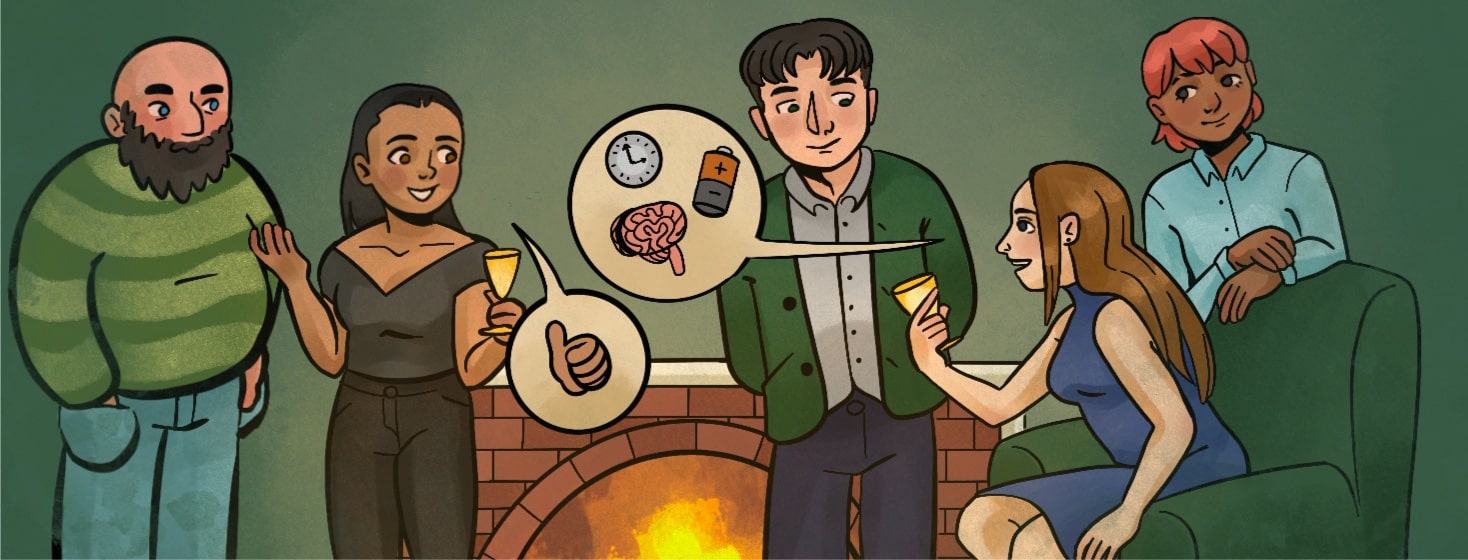Festive Flare Ups
Flare ups of my axial spondyloarthritis don’t come with too much of a warning. My disease does not believe in timely invitations, likely because it knows there is no way I would RSVP yes.
But with the holidays rolling around, invitations are starting to roll in and I dread the typical RSVP along with it.
Will I be coming alone? Will I be coming at all? These are both incredibly loaded, tiring questions.
I will be coming alone, and remembering that and why that is, can be a downer. My life in my 20’s is not what I expected for a million different reasons, and my lack of a partner is usually considered collateral damage.
When would I have time to go on a date? Where is this mystery person who can hold my hand during flares and accompany me to holiday parties? They are likely out there but attempting to figure out dating with an unpredictable illness is an adventure I don’t currently have the space for.
There are a handful of unpredictable factors that go into whether I would be coming to an event at all
Before we even consider my pain levels, I have to consider my fatigue. I have to consider if I’ve done anything that needed a lot of energy the last few days beforehand, finding the balance of when to spend precious energy.
I then have to consider the pain. How manageable is it? How manageable will it be after this particular event, how will my pain look a week after the fact?
It is never as simple as a single event when you have a chronic illness.
It isn’t even as simple as just my axial spondyloarthritis. Cleveland Clinic has said that up to one third of people with serious chronic conditions have symptoms of depression. The need to adjust to both the illness itself and how illness affects every corner of life can easily spiral into clinical depression.1
This all leads to a difficult balancing act, which is only exacerbated by the nature of the holiday season. The culmination of factors out of your control has a tendency to negatively impact mental wellbeing. Figuring out how and when to prioritize your illness’ needs and when to prioritize your mental wellbeing can feel like a losing battle.
The Cleveland Clinic also discussed the connection between the quality of mental health and physical health. They note that it is highly important for chronic conditions and clinical depression to be treated at the same time and with both in mind. Depression is also noted to exacerbate the symptoms of chronic conditions, including pain and fatigue with axial spondyloarthritis.1
How can you manage it?
Personally I manage it through a combination of interpersonal communication and boundaries.
The people inviting you to celebrate the holidays? Talk authentically with them about your needs. Do you need to be home by a certain time? Do you need certain adjustments to be able to practice certain holiday traditions? They won’t know unless you communicate with them, and you’ll be surprised by how easy it can be to accommodate during the holidays.
As for coping with loneliness while sick, my heart goes out to everyone who can relate. Being young and sick can feel oxymoronic when you think about how each is represented, but that is also something that can be worked through. Creating space and kindness for yourself as a sick person is incredibly important.
All of this is to say, even if the holidays are something exhausting, take time to celebrate. Take time to celebrate what you are grateful for; big and small, standard or not. Order in your favorite takeout, watch your favorite holiday movie, snuggle with your pets, do whatever you do when you want to celebrate.
But from a year-round perspective, I would urge people feeling similarly to seek out therapy. Processing my disability in therapy has been essential for me in regards to my mental wellbeing. When discussing chronic illness and mental illness, Mental Health America urges the need for to look at the whole person's circumstances when treating mental and physical illness. Keep this in mind when and if you seek therapy. Resources regarding chronic pain and mental health can be found linked below. 2

Join the conversation